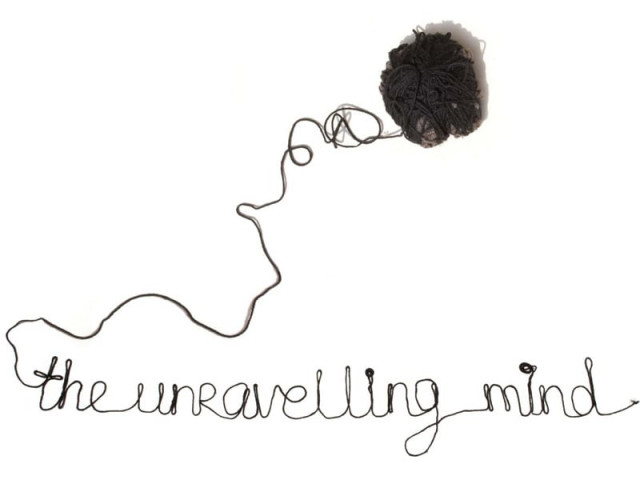Mental health: The lies we tell ourselves
When a loved one suffers from a psychiatric condition, often the people closest to them make it worse.

“I barely managed to escape from my family who were trying to kill me and in May 2001, I sought shelter at an Edhi centre,” she says. “Somehow they found me and took me back but I ran away again in July.” After all, staying around them would mean that they would just try to burn her again.
Ayesha is one of four sisters and three brothers who lost their father in the early 1980s. Curiously though, according to Ayesha, her father is the former president of Pakistan, Pervez Musharraf.
It is because of this claim that she is being treated for auditory and visual hallucination at Karwan-e-Hayat (KeH), a charitable institution for the mentally indigent. Clinically she has been diagnosed with schizophrenia.
It is difficult for anyone to believe that this is the diagnosis for someone as well put-together as Ayesha. She is dressed in a crisp dark blue shalwar kameez and has neatly applied black eye-liner and burgundy lip colour. She speaks fluent English as well, something that can throw people off. But in fact, they mask symptoms that include anger and aggression that began surfacing a little over 25 years ago, around the same time her father passed away.
Most of Ayesha’s story is false.
According to her mother, she has never run away nor has she ever stayed at an Edhi centre. Her family has never tried to cause her any harm. In fact it was her sister who admitted her to the psychiatric care and rehabilitation centre. And of course her late father was not Pervez Musharraf. Surprisingly, however, Ayesha’s situation is not as uncommon as people think. KeH’s Masrur Ahmad explains: “A study carried out by the Pakistan Psychiatric Society and Hamdard puts 12% to 16% of our overall population as suffering from one kind of mental illness or another. When speaking of our adult population, which comprises roughly half of the overall population, about one-third is affected by mental problems. Moreover, 40% of Pakistanis suffer from some level of depression.”
(Read: Mental and psychological disorders: The silent killer that goes unnoticed)
When discussing general health people usually refer to the physical aspect of health and rarely mental well being. However, with rising food prices, transport fares and unemployment compounded by a vicious law and order situation in the city, Ahmad says it should come as no surprise that our mental health is going from bad to worse. “Violence has increased in our society while tolerance [towards others] is extremely low,” he says in frustration. “We see examples of this openly being demonstrated on our roads every other day.” There are other factors like trauma after natural calamities such as the floods last year which also take their toll on people who in many instances end up losing everything and have to completely rebuild their lives.
KeH’s medical superintendent and psychiatrist Dr Syed Ajmal Kazmi shares some disturbing statistics. “Depression is the second leading cause of disability [in terms of time lost] in the world. By 2020 it is estimated to become the leading cause. In Karachi around 600,000 people require acute treatment and our out-patients departments (OPDs) see a 10% growth in the number of patients every year.”
Presently, KeH OPDs record a daily average of 70 patients. And while female patients comprise twice the number of male patients, the ratio is the opposite for those who are admitted. “It is much more difficult keeping women in the facility as there is the fear of ‘mishaps’ especially with women who are not mentally stable,” says psychologist and KeH board member Imran Zafar.
The situation has worsened over the years and experts blame it on a lack of awareness and denial in society. People are not able to recognise the signs nor do they understand the fragility of a person’s mind when faced with adverse circumstances. “There is a stigma still attached to someone with a mental illness,” says Zafar. “Society and in many cases the family reject the notion and leave the person without much needed help and treatment.” People would rather go to faith healers and mazaars than seek professional help because they want to hide the issue. “This is a huge problem. If a girl is losing her mind then families do want to their sons to marry her sister as well, so the anxiety spreads.”
As for Ayesha, she hopes that she will live at KeH forever as she feels safe from her “evil ex-family”. But limited resources and space in the facility might force her family into making other arrangements. “Relapse is a huge issue,” Kazmi says. “Ideally we would like to keep patients for three months but the load brings the transition to about six weeks. Sadly, we have no choice for now. We hope with time we will be able to cater to more people.”
Published in The Express Tribune, September 5th, 2011.



















COMMENTS
Comments are moderated and generally will be posted if they are on-topic and not abusive.
For more information, please see our Comments FAQ